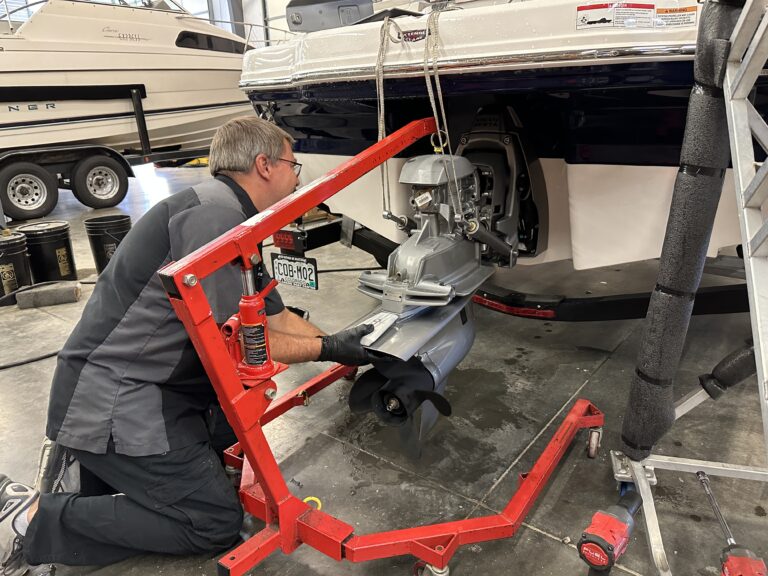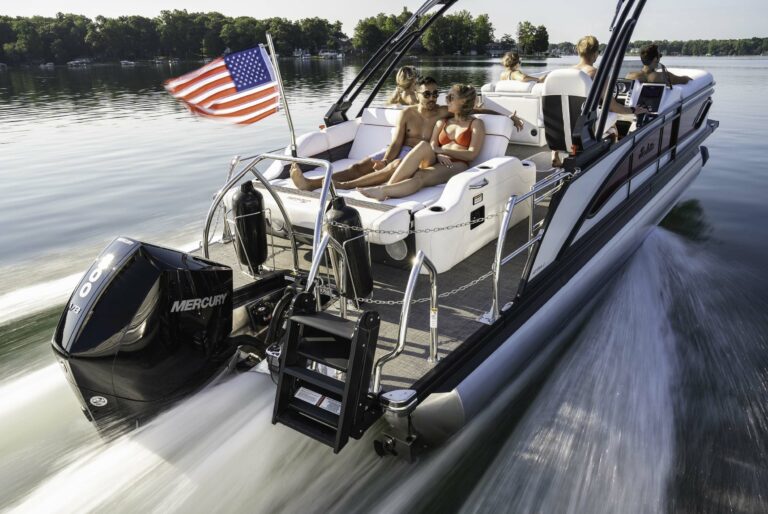It’s that time of year when our service department starts getting lots of questions from customers about fuel. Specifically, they ask if it’s OK to use gasoline combined with ethyl alcohol, or ethanol.
To review, the EPA in 2005 required gasoline makers to begin adding ethanol to fuel for environmental reasons. Today, most gas pumps sell E10 fuel, which is gasoline mixed with 10 percent ethanol. Environmentalists have been proposing raising standards to permit use of E15, a blend of 15% percent ethanol and 85% gasoline, and even the E85 blend for the newest flex fuel autos. These latter two types of ethanol gasoline are less commonly found around the country.
Boat owners need to pay attention to the type of fuel they pump into their boats. Statistics show that more than 90 percent of boat owners trailer their boats, and usually fill them at the gas pumps when they refuel their autos. That means most boat owners are currently using E10 gasoline.
Is that okay? The answer is yes…with an asterisk.
The problem with using an ethanol blended fuel is that ethanol tends to absorb water molecules, from the air as well as from actual water. And in the boating environment, there’s a lot of water molecules around!
When water (absorbed into the fuel tank by the ethanol) and gasoline mix, something called phase separation occurs, and the ethanol-water mix can separate from the gasoline and sink to the bottom of your fuel tank. If that gets sucked into your fuel lines, performance issues can arise: misfiring, bad starting, poor compression and performance.
While lots of companies want to sell you fuel additives which they say will combat and eliminate this problem, the truth is that most won’t work. A good fuel filtering system can help, but requires frequent changes of the filtering substrate.
A second problem with ethanol is that it acts as an excellent solvent. Ethanol in gasoline will flow through your fuel lines and engine, dislodging gunk that collects throughout the system. That creates more filtering problems. And if left alone to sit for long periods of time, the ethanol can actually start eating away at rubber gaskets, plastic fuel lines and even some kinds of older fiberglass used to make the fuel tanks themselves. Not good.
Marine manufacturers and mechanics will recommend using E0, or ethanol-free gasoline. Unfortunately, E0 is hard to find and expensive to use.
E10 gas is widely available and, these days anyway, quite inexpensive. It is OK to use in your boat, as long as you are diligent about changing your fuel filters on a regular basis, and emptying your fuel tanks if your boat is out of the water for an extended time (like over the winter). It is strongly recommended NOT to use E15.
All of us are committed to living in sensitivity to the planet around us, and doing whatever we can to reduce emissions, lower our carbon footprints, and leave the world better than we found it. Educate yourself about the different kinds of fuels available and try to find the middle ground between environmental stewardship and protecting a valuable asset: your boat and its engine.
And if you have any further questions, please don’t hesitate to call our service technicians here at Colorado Boat Center and ask. We’re here to help you have the best possible boating experience.




